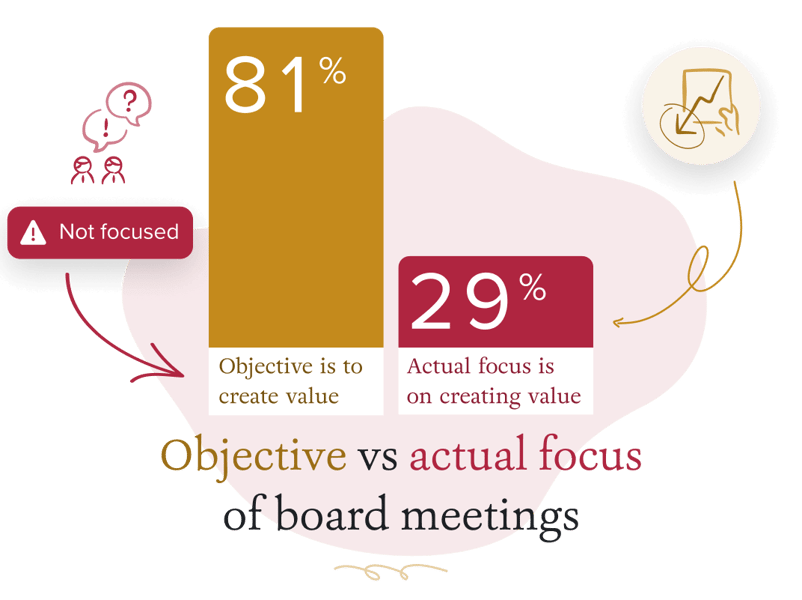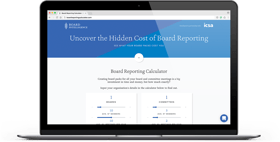Board effectiveness
How do you get the most from your board of directors?

The curious case of smart, ineffective boards
Stakeholders expect boards to perform flawlessly, but we all know there’s room for improvement — something even directors admit. Half of those surveyed in our research with Cambridge Judge Business School think their boards don’t discuss strategy enough. Our research with CGIUKI showed that a third of board members feel hindered by poor-quality board papers. And most private equity-backed boards say their meetings aren’t focused on their main objective: creating value.
That’s not for lack of investment or brainpower. Large organisations spend a staggering £7.5 million a year on board reporting and meetings, and boards are more diverse and skilled than they’ve ever been. So, what’s going wrong?
Find out whether your board is as effective as you think
Board packs are getting worse. Why?
Not only have board packs been getting longer, but the level of insight they bring to bear has been drastically declining too.
Boards need to take time to make time
Where do boards mostly spend time — operations, governance, or strategy? We collaborated with Cambridge Judge to find out.
Assess the quality of your board pack
Use this online tool designed with CGIUKI to find out how effective your board packs are and get personalised advice on how to improve.
How much do board packs cost you?
Your board reporting likely costs more than you think. Find out how much with our calculator, jointly built with CGIUKI.
Three steps to unlocking board effectiveness
Equip your team with the right tools for the job
Start by giving your board and governance team tools to help them work efficiently.
A board portal can streamline the reporting cycle, ensure directors always have the latest papers, and keep everything secure.
AI-powered reporting software can support executives to write better reports in less time.
And an agenda planner can help to manage the board’s heavy workload while keeping discussions focused on what matters.
Craft reports that deliver insight, not data
Improving the flow of information to the board will only get you so far. Boards needs high-quality information too.
Your report writers can follow best practice guidance in their executive summaries, management reports, business cases to deliver high-impact papers that fuel more productive meetings.
And management reporting software can take it further, helping writers to deliver great reports every time by embedding the QDI Principle — a methodology for high-quality thinking and writing.
Harness your organisation’s collective intelligence
Last but not least: harness everyone’s potential to better support the board.
Enduringly successful organisations don’t rely on a genius CEO or a board full of heavy hitters. Rather, they empower everyone to use their brains and contribute. They tap into their company’s vast reservoir of brainpower by giving people the tools, skills, and confidence to ask the right questions, communicate with impact, and focus on the problems and opportunities that matter most — what we call Collective Intelligence.
In action: how TSB transformed the effectiveness of its board
TSB is a leading UK retail bank with over 200 branches, five million customers, and 200 years of history. Conscious that its reporting processes were preventing the organisation from getting the full benefits of directors’ expertise, TSB partnered with Board Intelligence.
“Board Intelligence understood what it is that we needed to do to improve the effectiveness of the board. Focusing on their model was just brilliant.”
~ Guy Dunlop, General Counsel, TSB



